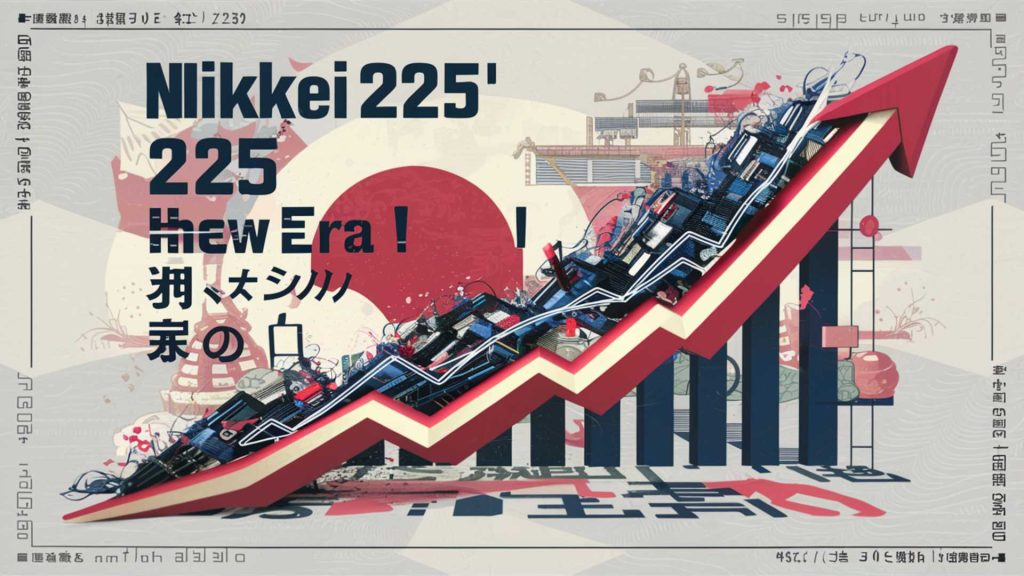Rise in Japan’s Stock Market
nikkei stock market live: Japan’s Nikkei 225 index achieved a remarkable milestone, soaring to a record-breaking high, indicative of a robust and thriving equity market. Fueled by significant gains in banking, electronics, and consumer stocks, the index experienced a nearly 2% increase, reaching 39,029 points. This achievement not only surpassed the previous high of 38,915.87 set in 1989 but also marked a new era of investor optimism and confidence in the Japanese economy. nikkei stock market live
The Key Factors Driving the Rally
Several factors have contributed to the extraordinary performance of Japan’s stock market. Notably, the strong corporate earnings reported by Japan Inc. for the third quarter have played a crucial role. Recognizing this strength, Bank of America equity strategists revised their year-end forecasts for 2024, setting new targets for both the Nikkei 225 and the Topix indices.

Moreover, the depreciation of the yen, which has lost about 6% against the dollar this year, has further propelled the market’s momentum. This currency trend has made Japanese exports more competitive internationally, benefiting investors and companies alike.
The Japanese equity market reached a new high after almost 35 years. The rally has made Japanese stocks some of the hottest buys of the past year. This seems as Japan’s GDP in dollar terms increased from 3.1 to 4.2 trillion dollars, indicating Japanese equity market aligning with the broader economic growth.
Rise in earnings and wages
As per analysts at Goldman Sachs analysts, optimism around corporate earnings in the last quarter of 2023 were 45% higher on-year. Increasing wages amid a tighter labor market by many companies like Toyota, Nintendo, amongst others has also boosted confidence in the economy.
Increased inflows of cash
Inflow of foreign cash continues to pour into Japanese stocks as investors take advantage of the cheap yen and corporate governance reforms that have boosted shareholder returns.
Increased cash lead to stock inflow in Nikkei 225 index
With China unraveling at a pace previously thought unimaginable, foreign investors are pulling money and there has been a substantial inflow in Japanese stocks. This has increased the liquidity in Japanese markets which can be attributed for the rise in benchmark indices.
Investor Enthusiasm and Government Reforms
Investor interest in Japanese equities has surged, partly influenced by Warren Buffet’s optimistic stance on Japan. Additionally, the Japanese government’s efforts to enhance corporate governance have been met with positive reception. These reforms aim to improve shareholder returns and have encouraged more foreign investment in Japan’s largest and most liquid stocks.
Key Market Performers
| Sector | Performance Increase |
|---|---|
| Banking | Significant |
| Electronics | Notable |
| Consumer Stocks | Substantial |

Investment Highlights
| Indicator | Detail |
|---|---|
| Foreign Investment | Over 2 trillion yen in January |
| Corporate Earnings Growth | 45% increase in Oct-Dec period |
| Currency Depreciation | 6% drop against the dollar this year |
The Impact of Monetary Policies and Inflation
Japan’s financial landscape has been uniquely shaped by its monetary policies, including the maintenance of the world’s last negative interest rates regime despite rising inflation. This policy stance, alongside the expectations of a shift in April, underscores the complexity of Japan’s economic challenges.
Challenges and Expectations
While the weakening yen has bolstered export sectors, it has also strained consumer purchasing power, raising concerns about domestic consumption. Moreover, Japan’s GDP contraction, leading to its position being overtaken by Germany, highlights the need for strategic economic adjustments.
Conclusion
The Nikkei 225’s historic rally is more than a numerical milestone; it represents a confluence of strategic corporate practices, government reforms, and investor confidence. As Japan navigates through its monetary policies and inflation challenges, the world watches closely, anticipating the next steps in this economic evolution.
This comprehensive analysis sheds light on the dynamics of Japan’s stock market, offering insights into the factors driving its success and the challenges it faces. As we look to the future, the trajectory of Japan’s Nikkei 225 and broader economic policies will undoubtedly continue to attract global attention.
The Nikkei 225 is a stock market index for the Tokyo Stock Exchange (TSE). It is a price-weighted index, composed of Japan’s top 225 publicly-owned companies, representing a wide array of industries.
A weaker yen increases the competitiveness of Japanese exports by making them cheaper for foreign buyers. This can boost the profits of Japanese exporters, many of which are constituents of the Nikkei 225, thus positively affecting the index.
The Nikkei 225 hit a record high due to a combination of factors, including robust corporate earnings, favorable investor sentiment, and supportive government policies aimed at enhancing corporate governance. A weaker yen also contributed, making Japanese exports more competitive.






